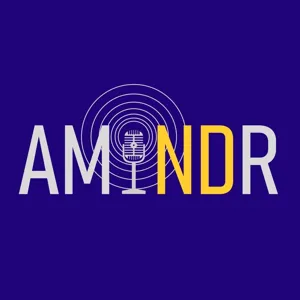Tired of the amyloid cascade hypothesis? Think there's more to AD than the plaques and tangles? You've come to the right place! Elyn is back for her final episode covering papers from 2021 on Vascular Contributions to Alzheimer Disease. Tune in to hear about the latest findings relating to cerebrovascular changes in AD, and why they matter.
Sections in this episode:
Insights from Clinical Studies (4:10)
Insights from Animal Models (14:47)
--------------------------------------------------------------
To find the numbered bibliography with all the papers covered in this episode, click here, or use the link below:
https://drive.google.com/file/d/1S2OmhcNjWt4Fs4kGSHCV93Vp2LRaXZx9/view?usp=sharing
To access the folder with all the bibliographies for 2021 papers, follow this link (it will be updated as we publish episodes and process bibliographies), or click the following link below:
https://drive.google.com/drive/folders/1N1zx_itPkCDNYE1yFGZzQxDDR-NiRx3p?usp=sharing
You can also find all of our bibliographies on our website: www.amindr.com.
--------------------------------------------------------------
Follow-up on social media for more updates!
Facebook: AMiNDR
Twitter: @AMiNDR_podcast
Instagram: @AMiNDR.podcast
Youtube: AMiNDR Podcast
LinkedIn: AMiNDR Podcast
Email: amindrpodcast@gmail.com
--------------------------------------------------------------
Please help us by spreading the word about AMiNDR to your friends, colleagues, and networks! Another way you can help us reach more listeners who would benefit from the show is by rating and/or reviewing us on Apple Podcasts, Spotify, or wherever you listen to podcasts. It helps us a lot and we thank you in advance for leaving a review!
Thank you to our sponsor, the Canadian Consortium of Neurodegeneration in Aging, or CCNA, for their financial support of this podcast. This helps us to stay on the air and bring you high quality episodes. You can find out more about the CCNA on their website: https://ccna-ccnv.ca/.
Our team of volunteers works tirelessly each month to bring you every episode of AMiNDR. This episode was scripted and hosted by Elyn Rowe, edited by Ellen Koch, and reviewed by Kate Van Pelt and Anusha Kamesh. The bibliography was made by Lara Onbasi and the wordcloud was created by Sarah Louadi (www.wordart.com).
Big thanks to the sorting team for taking on the enormous task of sorting all of the Alzheimer’s Disease papers into episodes each month. For December 2021, the sorters were Jacques Ferreira, Christy Yu, Kate Van Pelt, Kira Tosefsky, Dana Clausen, Eden Dubchak, Ben Cornish, Ellen Koch, and Elyn Rowe.
Also, props to our management team, which includes Sarah Louadi, Ellen Koch, Naila Kuhlmann, Elyn Rowe, Anusha Kamesh, Jacques Ferreira for keeping everything running smoothly.
Our music is from "Journey of a Neurotransmitter" by musician and fellow neuroscientist Anusha Kamesh; you can find the original piece and her other music on soundcloud under Anusha Kamesh or on her YouTube channel, AKMusic.
https://www.youtube.com/channel/UCMH7chrAdtCUZuGia16FR4w
--------------------------------------------------------------
If you are interested in joining the team, send us your CV by email. We are specifically looking for help with sorting abstracts by topic, abstract summaries and hosting, audio editing, creating bibliographies, and outreach/marketing. However, if you are interested in helping in other ways, don't hesitate to apply anyways.
--------------------------------------------------------------
*About AMiNDR: *
Learn more about this project and the team behind it by listening to our first episode: "Welcome to AMiNDR!"











